Navigating The 2025 Canadian Statutory Holiday Calendar: A Comprehensive Guide
Navigating the 2025 Canadian Statutory Holiday Calendar: A Comprehensive Guide
Related Articles: Navigating the 2025 Canadian Statutory Holiday Calendar: A Comprehensive Guide
Introduction
In this auspicious occasion, we are delighted to delve into the intriguing topic related to Navigating the 2025 Canadian Statutory Holiday Calendar: A Comprehensive Guide. Let’s weave interesting information and offer fresh perspectives to the readers.
Table of Content
Navigating the 2025 Canadian Statutory Holiday Calendar: A Comprehensive Guide

The Canadian statutory holiday calendar is a vital aspect of the country’s cultural and economic landscape. These designated days of rest offer Canadians the opportunity to celebrate national events, observe religious traditions, and enjoy time with loved ones. Understanding the nuances of this calendar is crucial for individuals and businesses alike, ensuring seamless planning and avoiding potential disruptions.
Understanding the Basics of Statutory Holidays in Canada
Statutory holidays, also known as public holidays, are legal days of rest recognized by the federal and provincial governments. On these days, most businesses and government offices are closed, and employees are entitled to a day off with pay. While the federal government designates certain national holidays, provinces and territories have the authority to establish their own unique observances, resulting in variations across the country.
The 2025 Canadian Statutory Holiday Calendar: A Detailed Breakdown
The 2025 calendar features a combination of federal and provincial holidays, offering Canadians a mix of national and regional celebrations. Here’s a comprehensive breakdown:
Federal Statutory Holidays:
- New Year’s Day (January 1): Marking the start of a new year, this holiday is observed across Canada.
- Good Friday (March 28): A Christian holiday commemorating the crucifixion of Jesus Christ, observed in provinces and territories with a significant Christian population.
- Easter Monday (March 31): Following Good Friday, this holiday is observed in several provinces and territories, celebrating the resurrection of Jesus Christ.
- Victoria Day (May 19): A holiday honoring Queen Victoria, observed in all provinces and territories except Quebec.
- Canada Day (July 1): Celebrates the anniversary of the Canadian Confederation, a national holiday observed across the country.
- Labour Day (September 1): A day to recognize the contributions of workers, observed across Canada.
- Thanksgiving Day (October 13): A national holiday expressing gratitude for the harvest and blessings, observed across Canada.
- Christmas Day (December 25): A Christian holiday celebrating the birth of Jesus Christ, observed across Canada.
- Boxing Day (December 26): Traditionally a day for giving gifts to those who provided services during the year, observed in most provinces and territories.
Provincial and Territorial Statutory Holidays:
- Family Day (February 17): Observed in Alberta, British Columbia, Manitoba, New Brunswick, Newfoundland and Labrador, Northwest Territories, Nova Scotia, Ontario, Prince Edward Island, Saskatchewan, and Yukon.
- St. Patrick’s Day (March 17): Observed in Newfoundland and Labrador and Nova Scotia.
- National Aboriginal Day (June 21): Observed in Manitoba, Saskatchewan, and the Northwest Territories.
- Civic Holiday (August 4): Observed in Ontario and British Columbia.
- Heritage Day (August 3): Observed in Alberta.
- Louis Riel Day (February 15): Observed in Manitoba.
- St. Jean Baptiste Day (June 24): Observed in Quebec.
- Natal Day (July 1): Observed in Nova Scotia.
- Prince Edward Island Day (September 2): Observed in Prince Edward Island.
- Discovery Day (August 5): Observed in Yukon.
Important Considerations for Statutory Holidays
- Provincial and Territorial Variations: It is crucial to note that statutory holiday observances can vary significantly between provinces and territories. For instance, while Good Friday is a statutory holiday in most provinces, it is not observed in Quebec.
- Business Operations: Businesses should consult their provincial and territorial regulations to determine the specific requirements for statutory holidays. These regulations may include provisions for paid time off, overtime pay, or holiday pay.
- Employee Rights: Employees are entitled to a day off with pay on statutory holidays. However, specific details regarding pay and working conditions may be outlined in individual employment contracts or collective agreements.
FAQs Regarding Statutory Holidays in Canada
Q: What happens if a statutory holiday falls on a weekend?
A: In most cases, if a statutory holiday falls on a weekend, it is not typically observed as a separate day off. However, some provinces and territories may offer alternative arrangements, such as a paid day off on a different day or an additional day of vacation.
Q: Do I have to work on a statutory holiday?
A: Generally, employees are entitled to a day off on statutory holidays. However, there may be exceptions for specific industries or professions, such as healthcare, emergency services, and retail.
Q: What if I am working on a statutory holiday?
A: If you are required to work on a statutory holiday, you are typically entitled to overtime pay, holiday pay, or a combination of both. The specific provisions vary depending on provincial and territorial regulations and employment contracts.
Q: What if I am a casual or temporary employee?
A: The entitlement to statutory holidays for casual or temporary employees may vary depending on the province or territory and the terms of their employment. It is advisable to consult with your employer or the relevant labor regulations.
Tips for Planning Around Statutory Holidays
- Stay Informed: Consult the official government websites of your province or territory to obtain the most up-to-date information on statutory holidays.
- Plan Ahead: Consider the impact of statutory holidays on your personal and professional schedules. Book travel arrangements, make appointments, and plan events well in advance.
- Communicate Effectively: Inform your colleagues, clients, and business partners about any potential disruptions due to statutory holidays to ensure smooth communication and minimize potential misunderstandings.
- Respect Local Customs: Recognize that different regions in Canada may have unique customs and traditions associated with statutory holidays. Be respectful of these cultural nuances.
Conclusion
The Canadian statutory holiday calendar plays a significant role in shaping the country’s cultural landscape and providing opportunities for Canadians to celebrate, reflect, and enjoy time with loved ones. By understanding the nuances of this calendar and staying informed about provincial and territorial regulations, individuals and businesses can navigate these days of rest effectively, ensuring seamless planning and avoiding potential disruptions.
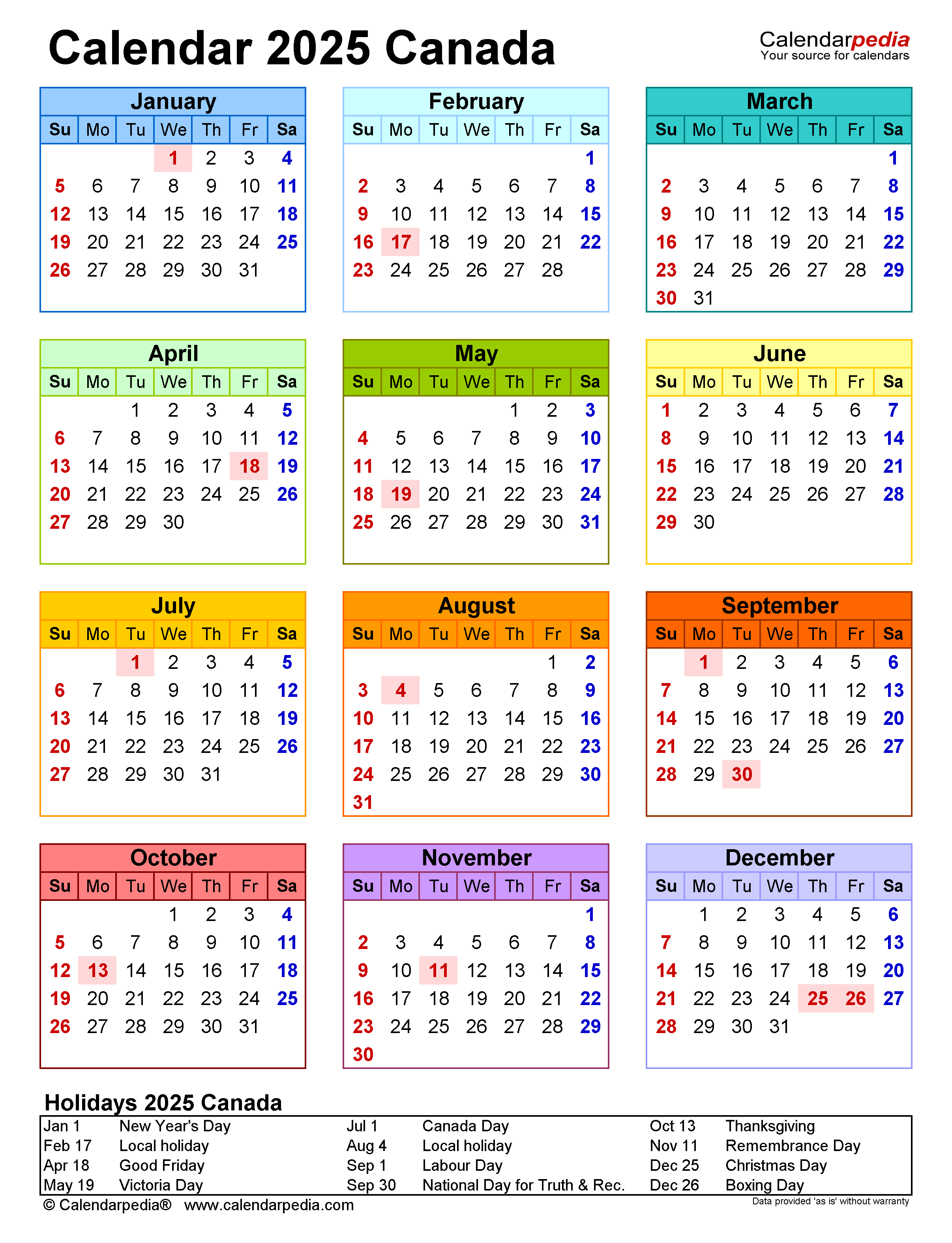

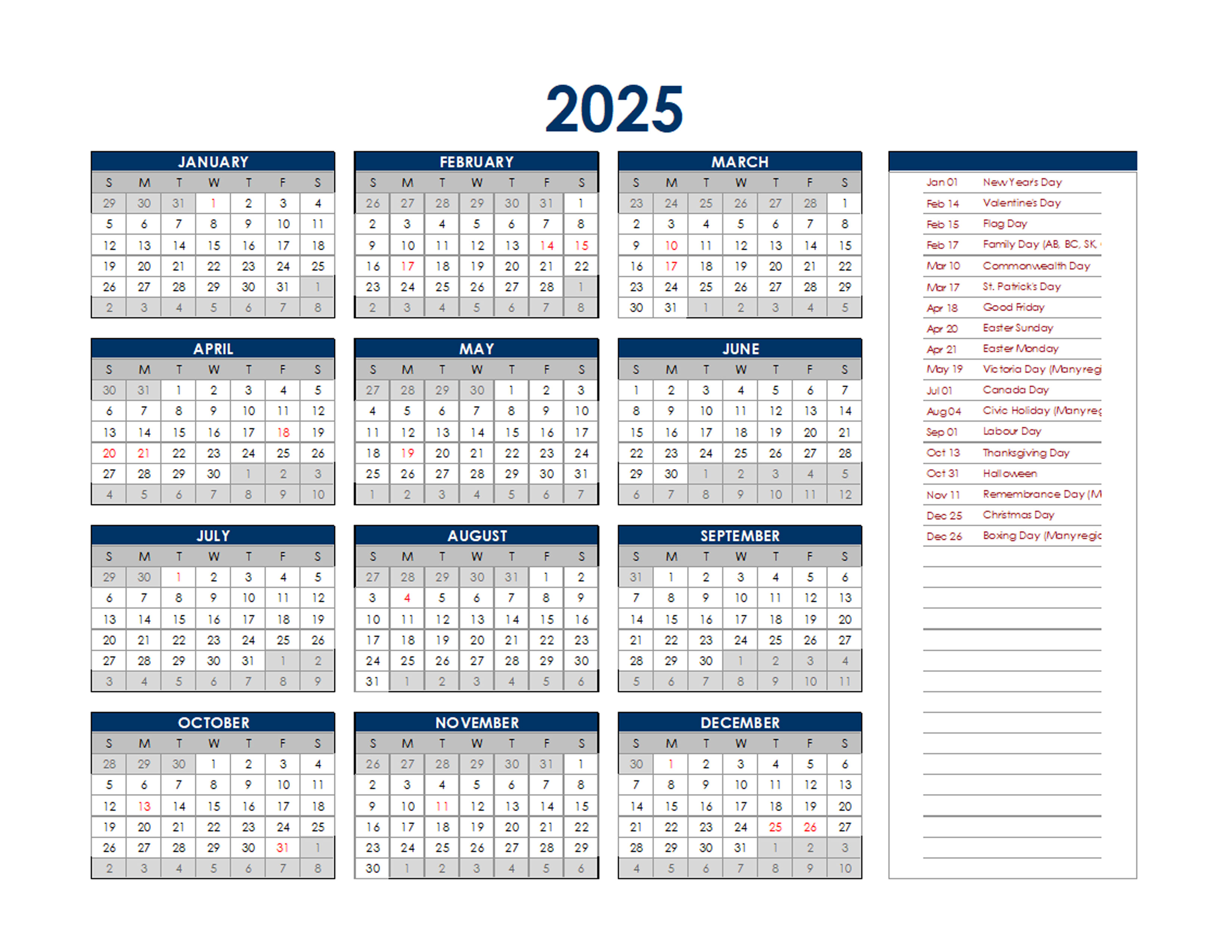
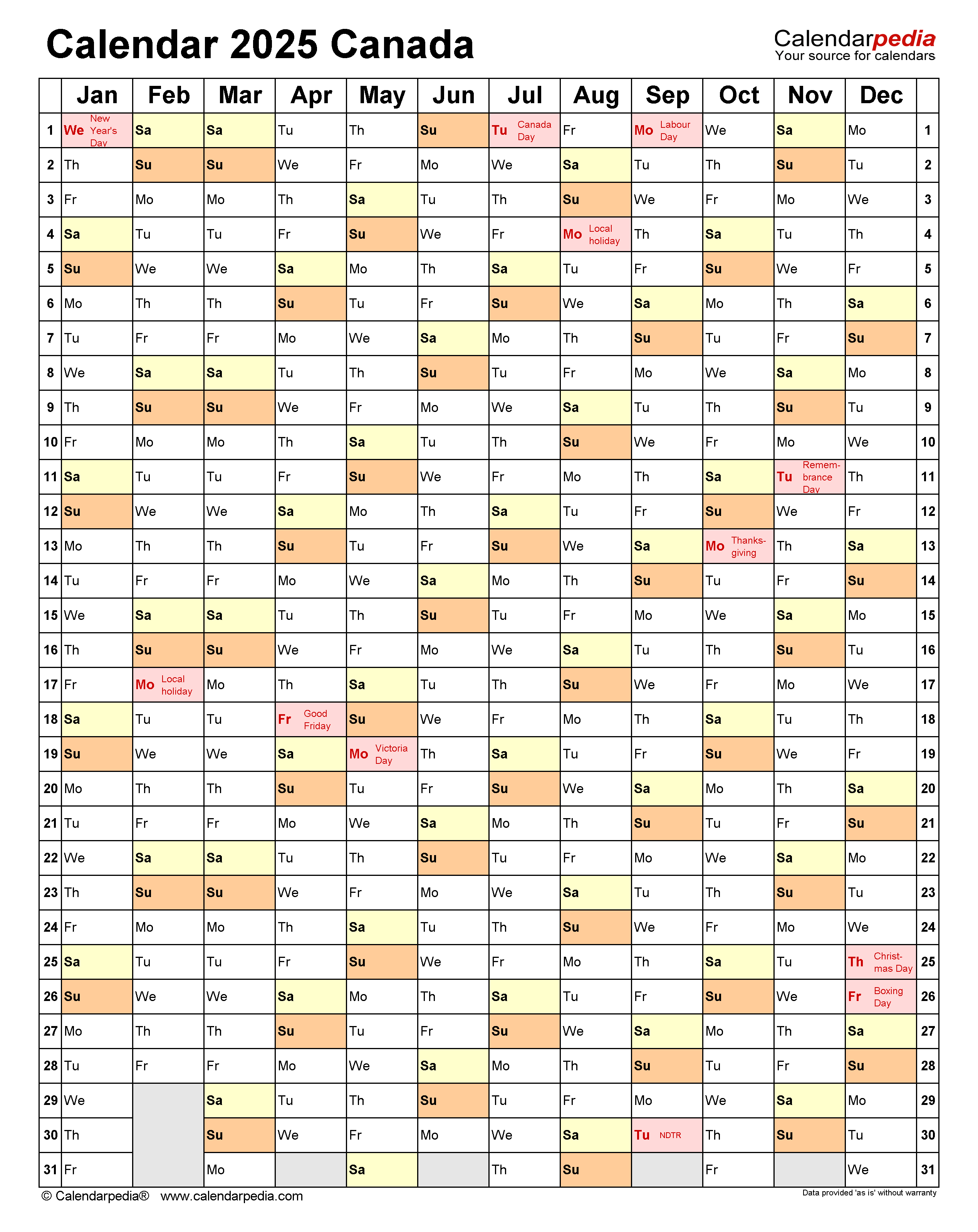
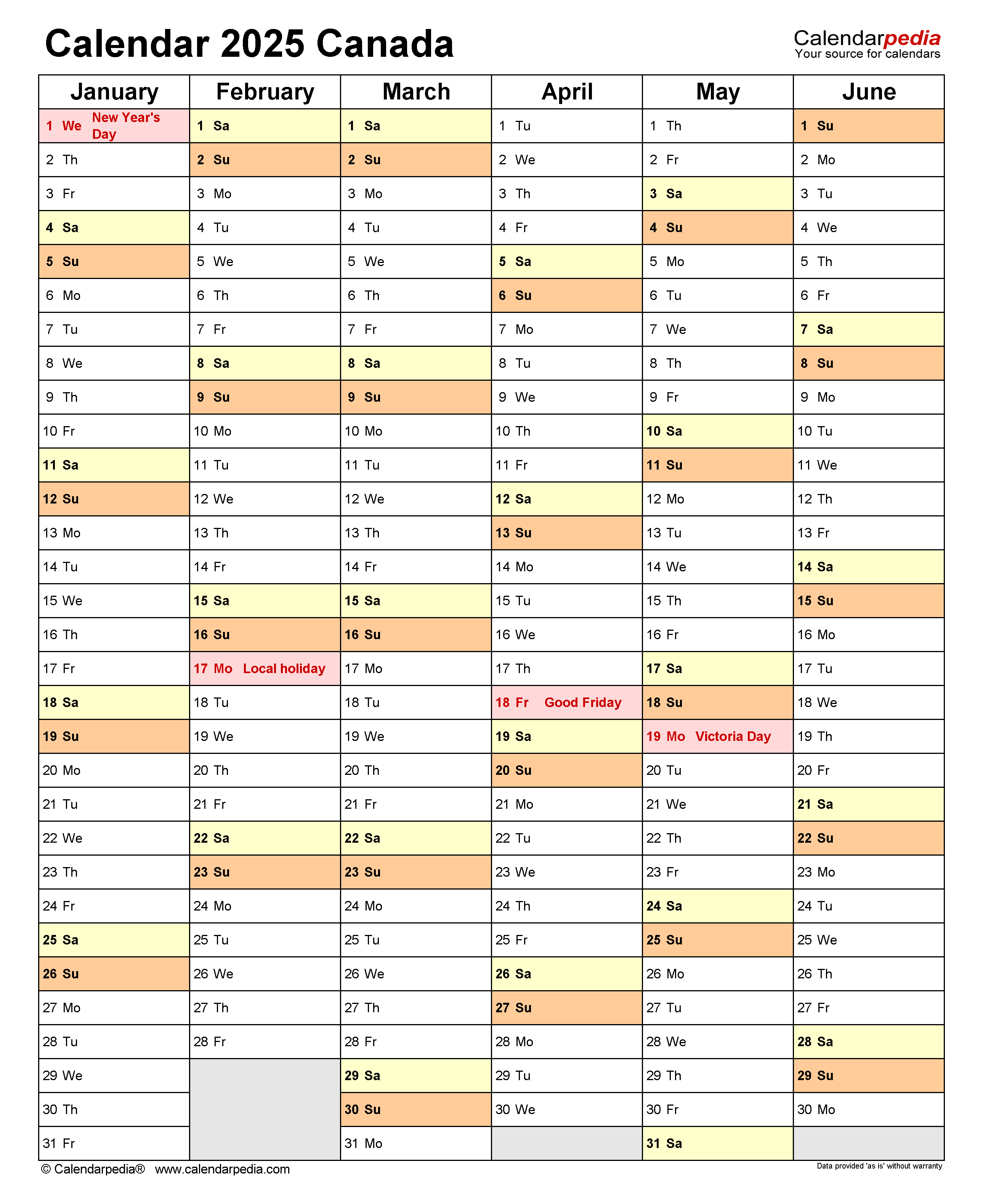
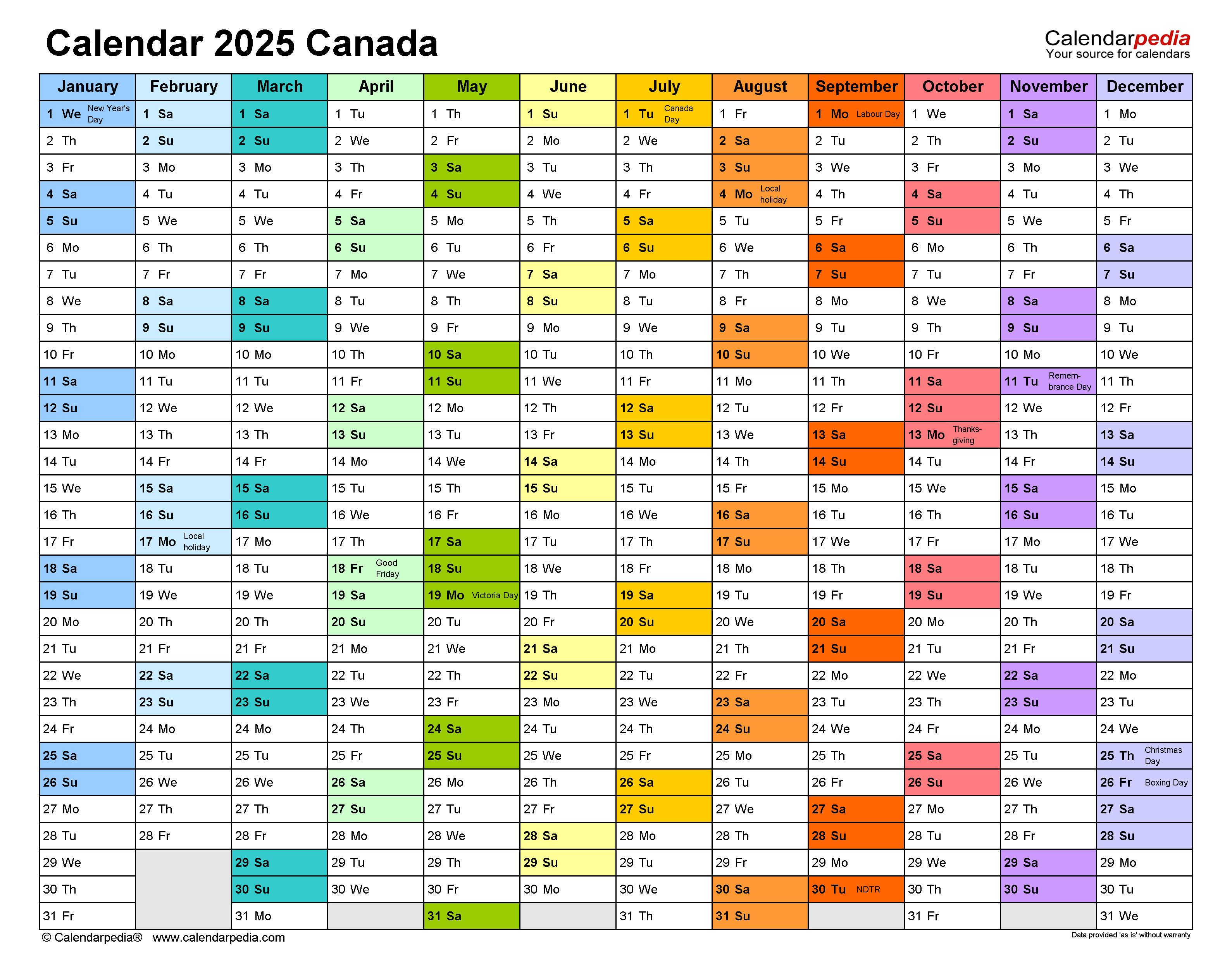
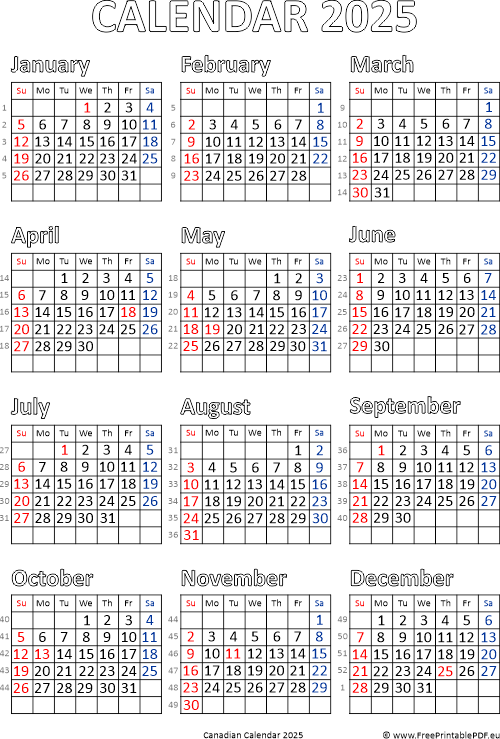

Closure
Thus, we hope this article has provided valuable insights into Navigating the 2025 Canadian Statutory Holiday Calendar: A Comprehensive Guide. We appreciate your attention to our article. See you in our next article!
You may also like
Recent Posts
- Exploring The World In February 2025: A Guide To Travel Destinations
- Navigating The Summer School Holidays In The UK: A Comprehensive Guide For 2025
- Navigating Singapore’s Public Holidays In 2025: A Comprehensive Guide
- A Comprehensive Guide To Skiing Holidays In January 2025
- Embracing The Winter Wonderland: A Comprehensive Guide To Ski Holidays In January 2025
- Tenerife In April 2025: A Springtime Escape To The Canary Islands
- The Future Of Travel: A Look At Holiday Trends For 2025
- Unveiling The World Of Travel: An Exploration Of Thomas Cook’s 2025 Brochure
Leave a Reply